Ramallah, 24 Muharram 1438/25 October 2016 (MINA) – Enas Taha, a resident of the Palestinian village of Kafr Al-Deek in the occupied West Bank, has become desperate.
“Since the water crisis started in June, the municipality has been able to supply water for only one hour twice a week,” said Taha. “I am checking the weather forecast every day; they announced rain three weeks ago, but it has not come yet. The only thing I can do is to pray to God.”
Many West Bank communities are facing similar problems, amid an acute water shortage that has lasted for months. In the Salfit, Jenin and Hebron governorates, some villages have gone as long as 40 days in a row without running water, Al-Jazeera reported.
In mid-July, residents in the Bethlehem area staged a sit-in for days to protest against the shortages, sparking clashes between Palestinian youths and Israeli forces.
Also Read: Israeli Forces Continue Demolitions and Strikes in Gaza Despite Ceasefire
“It is a very stressful situation. I have to consider and prioritise every single drop of water I use,” Taha said. “We have barely enough to drink, cook, shower and use the bathroom. Sometimes I don’t do the laundry or clean the house for weeks. It is hot and dusty. This is exhausting.”
“We have been facing shortages for decades, and the reason is not natural, but man-made – meaning the Israeli occupation and Israeli control over water resources in the Palestinian territories,” said Deeb Abdelghasoul, PWA’s director of the water resources department.
Also Read: Hamas Returns Remains of Another Israeli Hostage Under Gaza Ceasefire Deal
Bill collector comes more often than water
Some Palestinians have joked that the water bill collector comes to their homes more often than water. As demand rises, the cost of drinking water has skyrocketed, with some families spending up to 30 percent of their meagre incomes to purchase it.
Israel implements a policy of water cuts each summer, but this year, it reached an unprecedented peak. In early June, Israeli water company Mekorot informed the Palestinian Water Authority (PWA) of summertime supply cuts totalling more than 50 percent – and the cuts, while not as dramatic, remain in effect today, more than a month after the official end of summer.
“We are in regular contact with [Mekorot] to find a solution, but they constantly give us different excuses, such as the increase in demand, rising temperature, etc,” Deeb Abdelghafour, the PWA’s director of the water resources department.
Also Read: Knesset Approves Draft Law Allowing Israelis to Own Property in Occupied West Bank
The notion that the region is suffering from water scarcity is a myth, he added “We have been facing shortages for decades, and the reason is not natural, but man-made – meaning the Israeli occupation and Israeli control over water resources in the Palestinian territories.”
Data released by the Israeli Water Authority shows that a large expansion in agriculture in the settlements has led to an estimated rise of 20 to 40 percent in water consumption this year.
Beside that, Abdelrahman Tamimi, director of the Palestinian Hydrology Group for Water and Environmental Resources Development, said that this was not where water was needed the most.
“The Palestinian Authority has no solution for the water crisis. In my opinion, Israel has used this summer to put more pressure on us to purchase desalinated water, so they can allocate groundwater for the settlements and their future expansion,” Tamimi said.
Also Read: Heavy Rains Flood Tents of Displaced Palestinians in Southern Gaza
Since 2005, five desalination plants have been built in Israel, now producing approximately 50 percent of the country’s water supply.(T/P008/R07)
Mi’raj Islamic News Agency (MINA)
Also Read: Death Toll in Gaza Reaches 69,775, Majority Women and Children





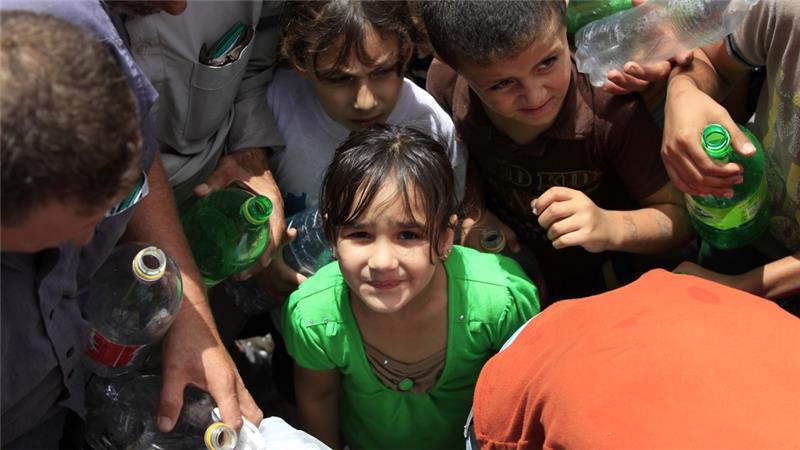

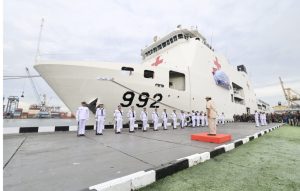







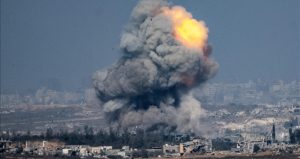



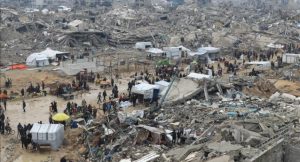
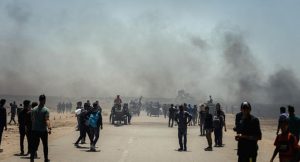














 Mina Indonesia
Mina Indonesia Mina Arabic
Mina Arabic